Table of Contents
Aspirants preparing for the KVS PGT Chemistry Exam 2026 should start by thoroughly reviewing the officially released KVS PGT Chemistry Syllabus on the Kendriya Vidyalaya Sangathan (KVS) website. Understanding the syllabus in detail is essential for creating a focused study plan that covers all important topics effectively. To boost exam readiness and improve your chances of selection for the Post Graduate Teacher (PGT) Chemistry post, download the KVS PGT Chemistry Syllabus PDF and begin preparation with a clear, structured, and goal-oriented approach.
KVS PGT Chemistry Syllabus
The KVS PGT Chemistry Syllabus 2026 is designed to assess candidates’ in-depth knowledge of Chemistry, along with their English proficiency, language skills, teaching aptitude, and overall suitability for the Post Graduate Teacher (PGT) role. A thorough understanding of the syllabus helps aspirants plan their preparation strategically, focus on high-weightage topics, and increase their chances of success in the competitive KVS PGT Chemistry Exam 2026.
- KVS NVS Exam Analysis 2026 Out – Click to Check
- KVS NVS Answer Key 2026 Out – Click to Download
- KVS NVS Question Paper 2026 Out – Click to Download
- KVS NVS Admit Card 2026 – Click to Download
KVS Post Graduate Teacher Chemistry Syllabus: Overview
The KVS PGT Chemistry Syllabus 2026 outlines all key subjects and topics that candidates need to master for the Kendriya Vidyalaya Sangathan recruitment exam. Staying updated with official notifications and following a focused, strategic study plan aligned with the syllabus will significantly boost aspirants’ chances of securing the coveted PGT Chemistry teaching position.
| KVS PGT Chemistry Syllabus | |
| Organization Name | Kendriya Vidyalaya School (KVS Recruitment 2025) |
| Conducting Body | Kendriya Vidyalaya Sangathan |
| Post Name | PGT Chemistry |
| Vacancies | Notified Later |
| KVS Job Profile | National |
| Mode of Application | Online |
| Mode of Examination | Online |
| KVS Selection Process | Written Test & Interview |
KVS PGT Chemistry Exam Pattern 2026
The KVS PGT Chemistry Syllabus 2026, along with the revised exam pattern, provides candidates with a clear roadmap for effective preparation. The selection process consists of two-tier examinations followed by a 100-mark interview. The final merit list is prepared by giving 85% weightage to Tier-2 marks and 15% to the interview score, ensuring a balanced evaluation of subject knowledge and teaching aptitude.
KVS PGT Chemistry Tier-1 Exam Pattern 2026
Tier-1 is a qualifying, OMR-based objective test conducted for all applicants. The exam carries 100 questions, each worth 3 marks, making the total 300 marks.
| KVS Chemistry Tier-1 Exam Pattern |
|||
| Test Components | No. of Questions | Total Marks | Duration |
| Part I- General Reasoning | 20 | 60 | 2 Hours |
| Part II- Numeric Ability | 20 | 60 | |
| Part III – Basic Computer Literacy | 20 | 60 | |
| Part V – Language Competency (English) | 10 | 30 | |
| Part VI – Language Competency (Modern Indian Language) | 10 | 30 | |
| Total | 100 | 300 | |
KVS PGT Chemistry Tier-2 Exam Pattern 2026
Tier-2 will be conducted on the basis of the Subject Knowledge Examination (combination of Pen-Paper and OMR-based) as per the details mentioned below. The test will be of 2½ hours duration without any time limit for each part of the test individually.
| KVS Chemistry Tier-2 Exam Pattern |
||||
| Components of Test | Type | No. of Questions | Total Marks | Duration |
| Subject knowledge | Objective | 60 | 60 | 2.5 hours |
| Subject knowledge | Descriptive | 10 | 40 | |
| Total | 70 | 100 | ||
KVS PGT 2026 Interview
Shortlisting for the KVS PGT Chemistry Interview is based on Tier-2 exam performance, following a 1:3 ratio- three candidates are shortlisted for every vacancy. If multiple candidates have the same marks as the last shortlisted candidate, they are also included. For the Skill Test (if applicable), shortlisting follows a 1:5 ratio, with similar provisions for ties, ensuring all deserving candidates get considered.
Detailed KVS PGT Chemistry Syllabus 2026
The KVS PGT Chemistry Syllabus 2026 is meticulously aligned with the NCERT/CBSE curriculum for Classes XI and XII, designed to assess candidates’ conceptual clarity and in-depth understanding of Chemistry at the postgraduate level. The exam evaluates not only subject knowledge but also emphasizes teaching aptitude and the practical application of chemical concepts in real-world scenarios. To excel in the KVS PGT Chemistry Recruitment Exam 2026, aspirants must prepare thoroughly, balancing strong theoretical knowledge with practical relevance across all topics.
| Detailed KVS PGT Chemistry Syllabus | |
| Unit | Topics |
| Some Basic Concepts of Chemistry |
|
| States of Matter |
|
| Structure of an Atom |
|
| Equilibrium |
|
| Surface Chemistry |
|
| Chemical Kinetics |
|
| Redox Reactions and Electrochemistry |
|
| Solutions |
|
| Chemical Bonding and Molecular Structure |
|
| Thermodynamics |
|
| Classification of Elements and Periodicity in Properties |
|
| Hydrogen |
|
| General Principles and Processes of Isolation of Elements |
|
| p-Block Elements |
|
| d and f Block Elements |
|
| Coordination Compounds and Organometallics |
|
| Organic Chemistry: Some Basic Principles and Techniques |
|
| Hydrocarbons |
|
| Environmental Chemistry |
|
| Haloalkanes and Haloarenes |
|
| Alcohols, Phenols, and Ethers |
|
| Aldehydes, Ketones, and Carboxylic Acids |
|
| Amines |
|
| Polymers |
|
| Biomolecules |
|
| Chemistry in Everyday Life |
|
KVS PGT Chemistry Syllabus PDF
Candidates preparing for the KVS PGT Chemistry exam can download the complete syllabus in PDF format from the link provided below. The KVS PGT Chemistry Syllabus PDF includes a detailed subject-wise breakdown, covering all important topics relevant to the concerned subject. This downloadable resource will help aspirants understand the exam pattern, prioritize topics, and plan their preparation effectively. It is advised to save the syllabus PDF for regular reference to ensure a focused and well-organized study strategy throughout the preparation journey.

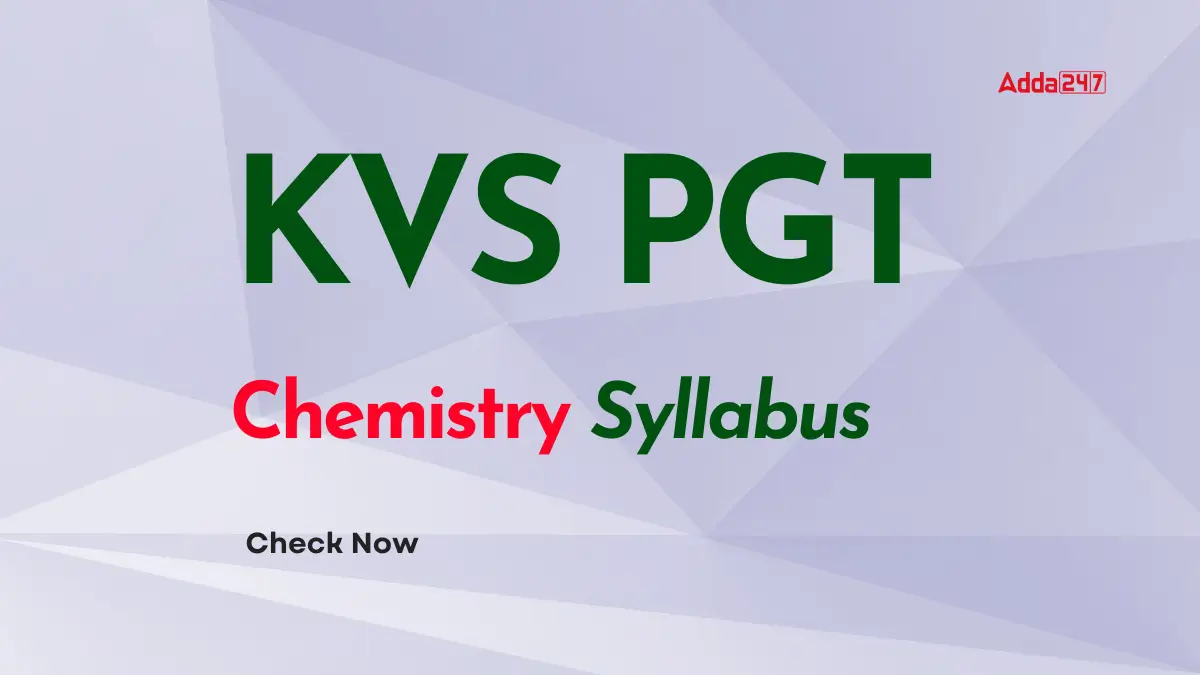
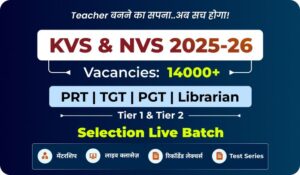

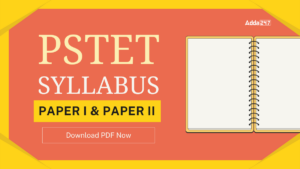 PSTET Syllabus 2026, Check Exam Pattern,...
PSTET Syllabus 2026, Check Exam Pattern,...
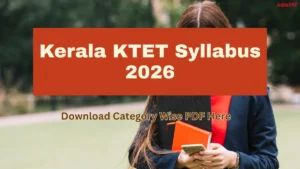 Kerala KTET Syllabus 2026, Download Cate...
Kerala KTET Syllabus 2026, Download Cate...
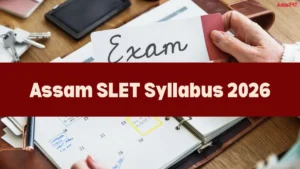 Assam SLET Syllabus 2026 PDF Download Su...
Assam SLET Syllabus 2026 PDF Download Su...













